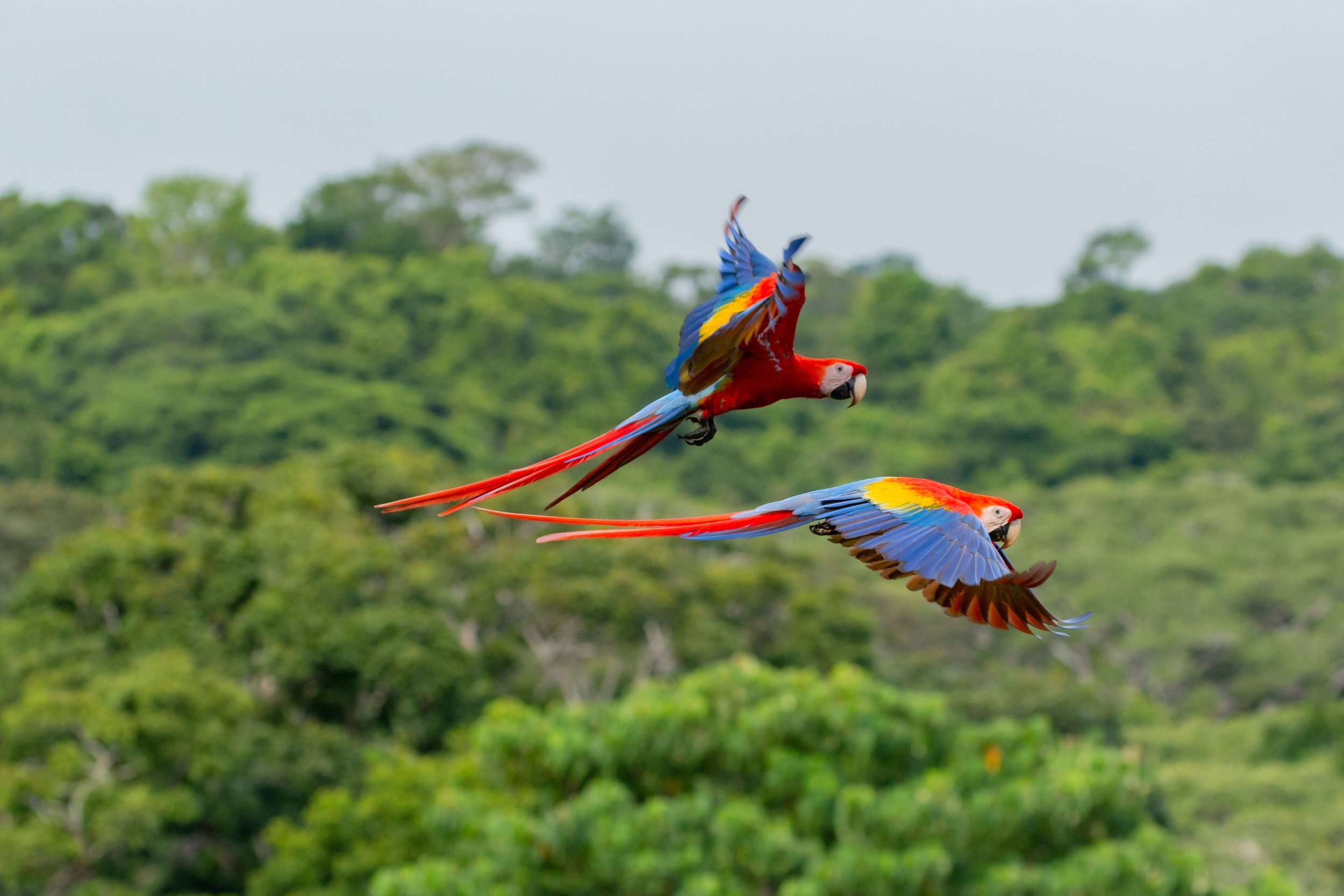
Impact of Dietary Fructose on the Lipid Profile in Six Macaws
Karine Béland, Shannon T Ferrell, Hugues Beaufrère,
Stéphane Lair, Marion Desmarchelier
J Avian Med Surg. 2021 Jul;35(2):196-203.
https://doi.org/10.1647/19-00024
Atherosclerosis is frequently diagnosed in captive parrots. Recent studies have highlighted the potential role of high fructose intake in the development of human cardiovascular disease. The objective of this study was to investigate the effects of dietary fructose on the lipid profile in psittacine birds. Six macaws, composed of 3 green-winged macaws (Ara chloropterus, 2 females, 1 male), and 3 blue-and-gold macaws (Ara ararauna, 1 female, 2 males), ranging from 15 to 26 years of age, were used as subject animals for this dietary investigation. Initially, fruits were removed from the diet and replaced with vegetables lower in fructose for a month. Then, with a crossover study design, each bird was randomly selected to receive either 34 kcal of a fructose solution daily for 5 days then an equivalent volume of water for 5 days, or water in the first 5 days followed by the 34 kcal fructose solution. Lipid profiles were repeatedly performed over the course of the study at specific intervals. Serum cholesterol (3.01-5.55 mmol/L), triglycerides (0.27-2.70 mmol/L), high-density lipoprotein-cholesterol (1.43-4.79 mmol/L), low-density lipoprotein-cholesterol (0.02-0.85 mmol/L), and very low density lipoprotein-cholesterol (0.12-1.22 mmol/L) levels were not statistically significantly different over time and treatment. Although no significant effect could be demonstrated in this study, further studies are needed to investigate the effect of a high fructose intake in psittacine birds, because it could have a deleterious influence on their cardiovascular health if proven to be linked with dyslipidemia as reported in humans. Higher amounts of fructose and longer periods of administration should be considered for future studies.
